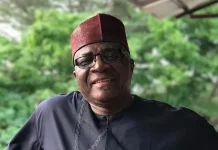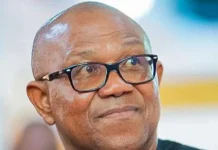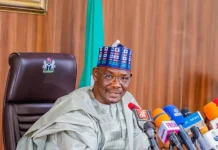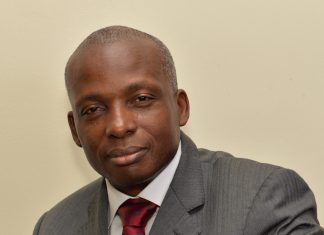Since taking office in June 2023 as Speaker of Nigeria’s 10th House of Representatives, Rt. Hon. Abbas Tajudeen has continuously supported creative legislative reforms aimed at promoting equity, inclusivity, and institutional relevance.
The attempt to assign constitutional roles to traditional institutions and the campaign for women’s reserved legislative seats are two notable aspects of his legislative program.
The aforementioned actions demonstrate Speaker Abbas’s profound comprehension of Nigeria’s intricate sociopolitical circumstances and his dedication to establishing a representative, inclusive, and sustainable governing framework.
In response to the issue of Nigeria’s ongoing underrepresentation of women in elective office, Speaker Abbas has advocated for reserved legislative seats for women. Even though they may make up over half of the nation’s population, women hold less than 10% of elected federal and state positions.
Given Nigeria’s enviable position at the bottom of Africa’s reference ladder, Speaker Abbas has led and continues to lead discussions and push legislative proposals to create reserved seats for women in the National and States Houses of Assembly. He recognizes that this imbalance is both unfair and counterproductive.
In order to ensure gender parity and a more fair and inclusive legislative process, this endeavor is reflected in the proposed “Reserved Seats for Women Bill,” which aims to guarantee a minimum threshold of female involvement in governance.
The advantages of this endeavor are numerous, to paraphrase the Speaker’s own remarks at several national and international forums on the topic.
The Speaker asserted that reserved seats will not only provide women more political clout but also enable them to contribute a range of viewpoints to the formulation of public policy, particularly concerning matters concerning gender-based violence, healthcare, education, and social protection.
He has categorically made the case that women’s voices should be heard more loudly in national legislatures in order to strengthen democracy and make government more sensitive to the interests of all citizens.
Speaker Abbas has worked and is still working with international development partners, women advocacy organizations, and civil society organizations to mobilize support for this revolutionary move.
“Our daughters will read, listen, and watch our debates, and our sons will gauge our courage in the face of necessity that calls for decisive actions,” Speaker Abbas said, urging his male legislative colleagues in the National and State Assemblies to support the “Reserved Seats for Women Bill” during the inauguration of a steering committee on the bill in Abuja on Wednesday.
These bills are intended “to build a bridge, not a barrier, we are opening an avenue, not closing a door,” according to Speaker Abbas. “No sitting Member loses a seat,” he said once more. Every state keeps its current representation. Instead of shrinking, we are growing. We are not subtracting; we are adding.
He added: “This is crucial for my male coworkers. You still have your mandate. You still have your constituency. We are looking for statesmanship, not sacrifice, and solidarity instead of surrender.
Roles for Traditional Institutions: Speaker Abbas is equally imaginative in his determination to see traditional institutions given constitutional roles, a long-overdue acknowledgement of the importance and power of traditional leaders in Nigerian governance.
Traditional institutions have been essential to grassroots growth, cultural preservation, community mobilization, and dispute resolution for generations.
They now, however, function outside of the official constitutional framework, which restricts their power and ability to aid in the growth of the country. This is different from what was previously the case in all pre-independence constitutions until 1963.
Social cohesiveness, local government, and efforts in security, mediation, and civic education will all be strengthened, according to Speaker Abbas, if traditional rulers are incorporated into the constitutional framework.
Under his direction, the House of Representatives has engaged in high-level discussions with traditional institution leaders and is currently examining constitutional amendments to specify precisely what roles traditional leaders can play in the Nigerian state of the twenty-first century in terms of advice, development, and moral supervision.
Moving with conviction rooted in his royal background and his desire for a more balanced social order where some responsibilities are legally entrusted to the traditional rulers, Speaker Abbas recently held a legislative roundtable discussion on the inclusion of traditional institutions’ roles in the ongoing constitutional amendment. He revealed that the 10th National Assembly aims to establish three-tier traditional institutions that span all political spectrums.
The 10th National Assembly is actively considering measures to give traditional institutions some constitutional legitimacy, he stated. Additionally, they are proposing the following three-tiered Traditional Council structure in the process:
In order to assist the President on matters pertaining to national unity, security, and cultural affairs, we ought to establish a National Council of Traditional Rulers.
Read Also: Why I Returned to Lead Aero Contractors – Sanusi Opens Up
The State Council of Chiefs, which state governments must constitutionally recognize, will be the second tier in regards to customary law, peacebuilding, and development.
He added, “The Local Government Traditional Council will then formally interact with Local Governments, particularly on matters of security, peacebuilding, and community development.”
Speaker Abbas’s attempts to orchestrate societal growth and prestige for traditional institutions are grounded in both his legislative posturing and his real-world pledges and actions.
In order to purchase and provide tens of brand-new, cutting-edge sports utility vehicles (SUVs) to traditional rulers throughout the nation’s six geographic zones, he has invested a significant amount of money.
In the same way that he has drawn Federal Government projects to a sizable number of kingdoms and domains to improve the development needs of Nigerians living outside of his own constituency, something that has drawn numerous traditional titles to him and continues to do so, he has also been very consistent in providing them with parliatives during important times, such as holidays.
A larger legislative strategy that prioritizes inclusive governance, cultural relevance, and institutional synergy is reflected in these two initiatives: women inclusion through reserved seats and constitutional recognition of traditional institutions.
By advocating for these changes, Speaker Abbas is attempting to close the gap between Nigeria’s sociocultural realities and its contemporary political structure.
His leadership is based on equity, pragmatism, and vision. He has a strong commitment to a Nigeria where all ethnic groups and cultural groups have a say in administration, which is seen in his dual push for increased female political representation and the constitutional inclusion of traditional authorities.
If these initiatives are successful, Nigeria’s democracy will surely be strengthened and sustainable national development would be promoted.
Join Television Nigerian Whatsapp Now
Join Television Nigerian Facebook Now
Join Television Nigerian Twitter Now
Join Television Nigerian YouTUbe Now





